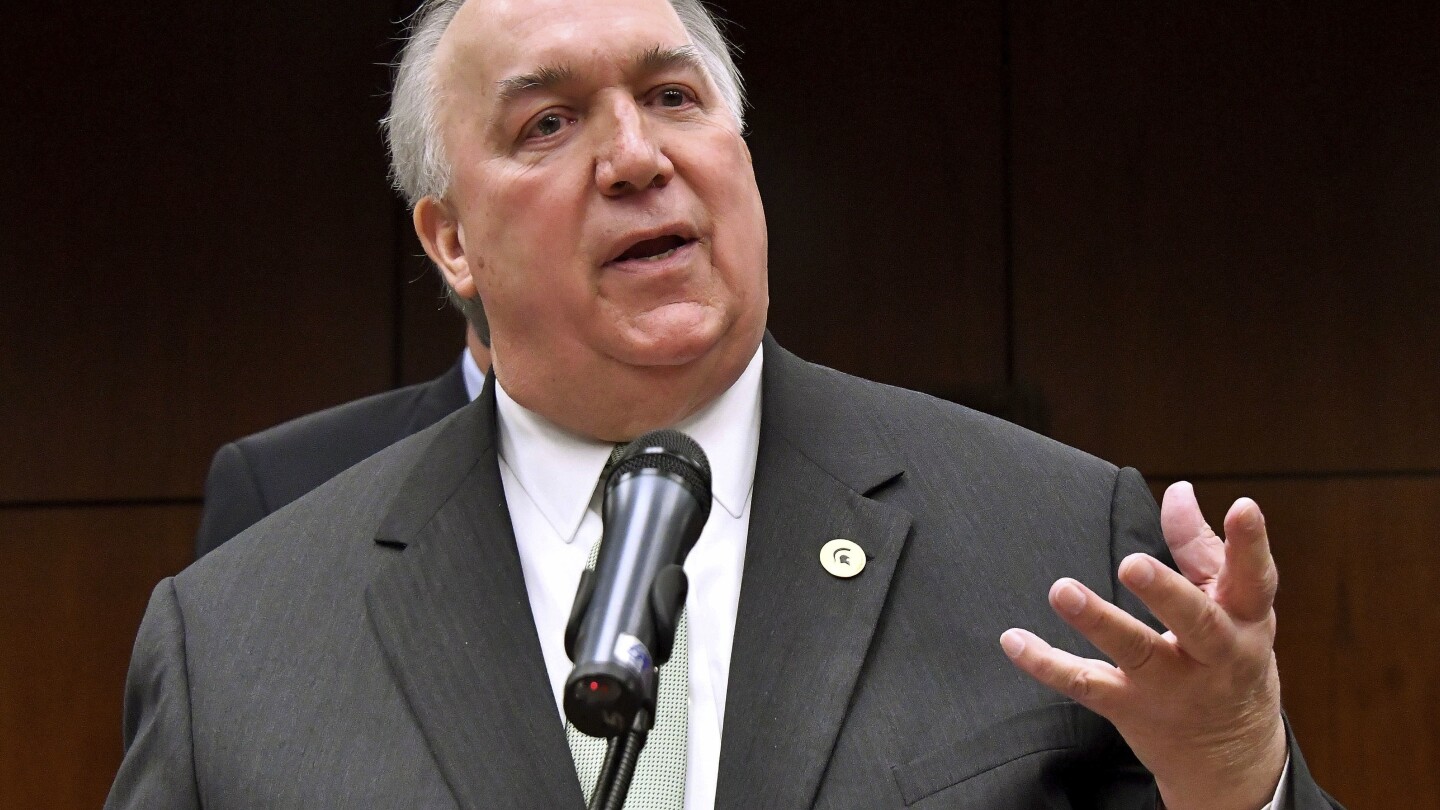LANSING, Mich. (AP) — Former Michigan governors and elected officials from both parties are joining a wider effort to combat misinformation and attacks on voting and ballot-counting in several swing states ahead of the fast-approaching presidential election.
The Democracy Defense Project also includes former officials from a number of states where then-President Donald Trump tried to overturn his election loss in 2020, including Georgia. Their goal is to build trust in elections through radio and TV ads, media outreach and local engagement.
“We’re going to jointly, wherever necessary, speak out when people try to call into question the integrity or the accuracy of our voting. We believe in our system and we don’t appreciate people making up stories that are self-serving,” former Michigan Gov. James Blanchard told The Associated Press ahead of the formal Thursday launch of the Michigan chapter.
Blanchard, a Democrat who served as governor from 1983 to 1991, is joined on the Michigan team by former Republican Gov. John Engler, former Democratic Lt. Gov. John Cherry and former Republican U.S. Rep. Mike Bishop.
The focus on strengthening trust in elections in battleground states follows years of attacks on their election systems by Trump and his allies, who have consistently sought to undermine the 2020 presidential results.
In Michigan, where 15 Republicans have been charged for acting as false electors, Trump pressured officials to not certify results, and armed protesters surrounded the secretary of state’s home, alleging voter fraud.
Many officials and attorneys are preparing for similar challenges this year as Trump is warning his followers — without evidence — that Democrats will try to cheat.
While most Americans trust government-certified election results at least a “moderate” amount, Republicans are more likely to trust Trump and his campaign, according to a new survey from the Associated Press-NORC Center for Public Affairs Research and USAFacts. At the same time, a majority of Republicans believe Trump’s lies that Joe Biden was not legitimately elected president.
During Tuesday’s debate with Vice President Kamala Harris, Trump again cast doubt on the 2020 election results, even though his campaign lost dozens of court cases, his own attorney general said there was no evidence of widespread fraud, and reviews, recounts and audits in the battleground states where he disputed his loss — including Michigan — all confirmed Biden’s win.
Bishop said hearing Trump continue to deny he lost the 2020 election was “painful to watch” and that he “turned the TV off at that moment.”
“It was very disappointing to me to see this issue brought up again. I did not expect it. I don’t think most people did,” he said. “I do think it’s a crushing blow for the Republican nominee.”
Engler, who served as governor from 1991 to 2003, shared a similar sentiment, saying Trump “lost the election, he did not serve as president and he will not serve as president for one day in this four-year term.”
“That’s over. And he’s foolish in my mind for continuing to dwell on this,” said Engler.
What to know about the 2024 Election
- Today’s news: Follow live updates from the campaign trail from the AP.
- Ground Game: Sign up for AP’s weekly politics newsletter to get it in your inbox every Monday.
- AP’s Role: The Associated Press is the most trusted source of information on election night, with a history of accuracy dating to 1848. Learn more.
Many other members of the Democracy Defense Project have condemned Trump’s comments about the 2020 election. Even so, some still plan to support him this year, said the group’s national spokesperson, Brian Jones, adding they “still believe in the importance of our election system and that the 2020 election was rightly decided.”
The group is operating in eight states: Arizona, Georgia, Michigan, Nevada, New Hampshire, Ohio, Pennsylvania and Wisconsin.

